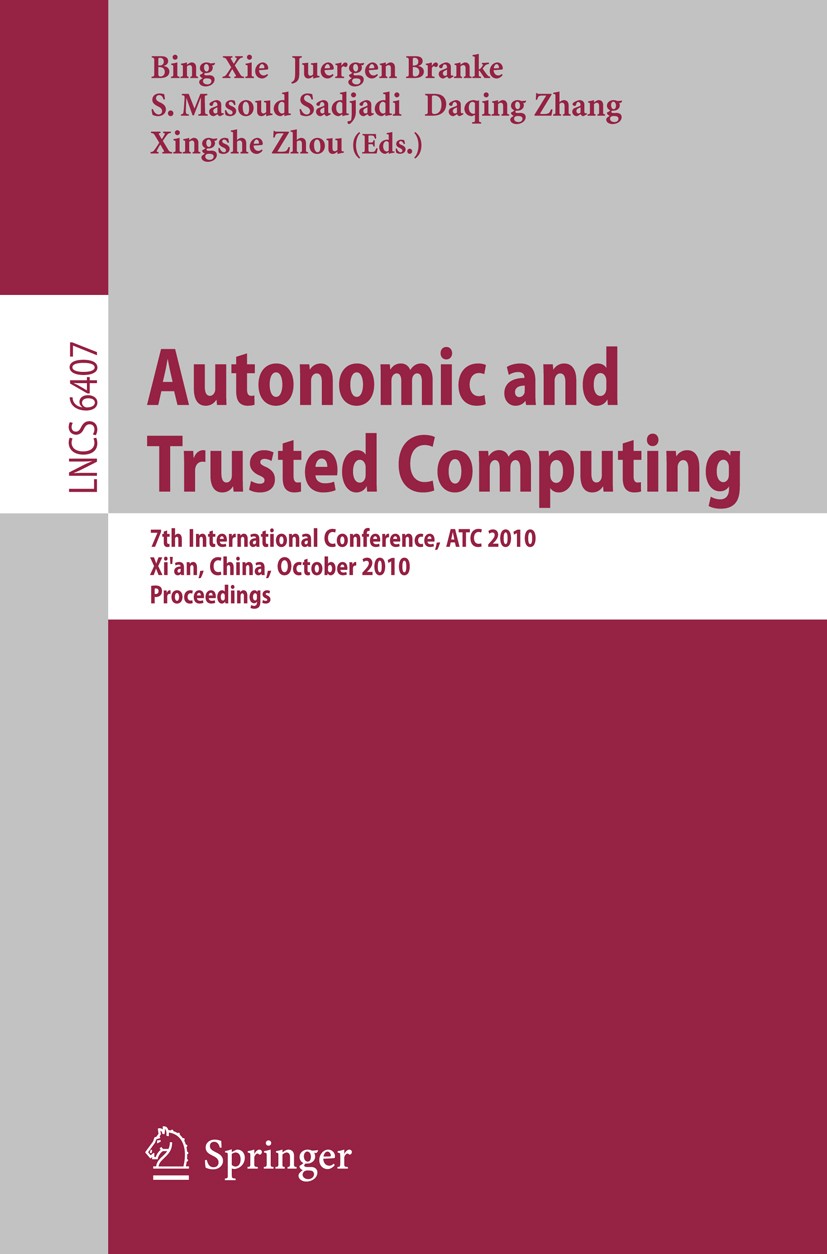| 期刊全稱 | Autonomic and Trusted Computing | | 期刊簡稱 | 7th International Co | | 影響因子2023 | Bing Xie,Juergen Branke,Xingshe Zhou | | 視頻video | http://file.papertrans.cn/167/166746/166746.mp4 | | 發(fā)行地址 | Fast-track conference proceedings | | 學科分類 | Lecture Notes in Computer Science | | 圖書封面 |  | | 影響因子 | Computing systems including hardware, software, communication, and networks are becoming increasingly large and heterogeneous. In short, they have become - creasingly complex. Such complexity is getting even more critical with the ubiquitous permeation of embedded devices and other pervasive systems. To cope with the growing and ubiquitous complexity, autonomic computing (AC) focuses on self-manageable computing and communication systems that exhibit self-awareness, self-configuration, self-optimization, self-healing, self-protection and other self-* properties to the maximum extent possible without human intervention or guidance. Organic computing (OC) additionally addresses adaptability, robustness, and c- trolled emergence as well as nature-inspired concepts for self-organization. Any autonomic or organic system must be trustworthy to avoid the risk of losing control and retain confidence that the system will not fail. Trust and/or distrust relationships in the Internet and in pervasive infrastructures are key factors to enable dynamic interaction and cooperation of various users, systems, and services. Trusted/ trustworthy computing (TC) aims at making computing and communicati | | Pindex | Conference proceedings 2010 |
The information of publication is updating

|
|
 |Archiver|手機版|小黑屋|
派博傳思國際
( 京公網(wǎng)安備110108008328)
GMT+8, 2025-10-30 05:37
|Archiver|手機版|小黑屋|
派博傳思國際
( 京公網(wǎng)安備110108008328)
GMT+8, 2025-10-30 05:37


